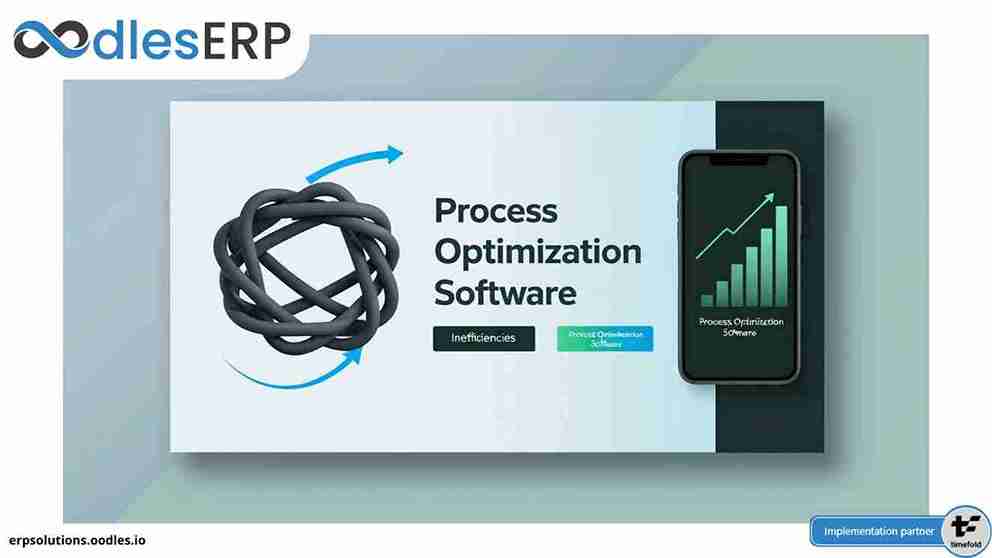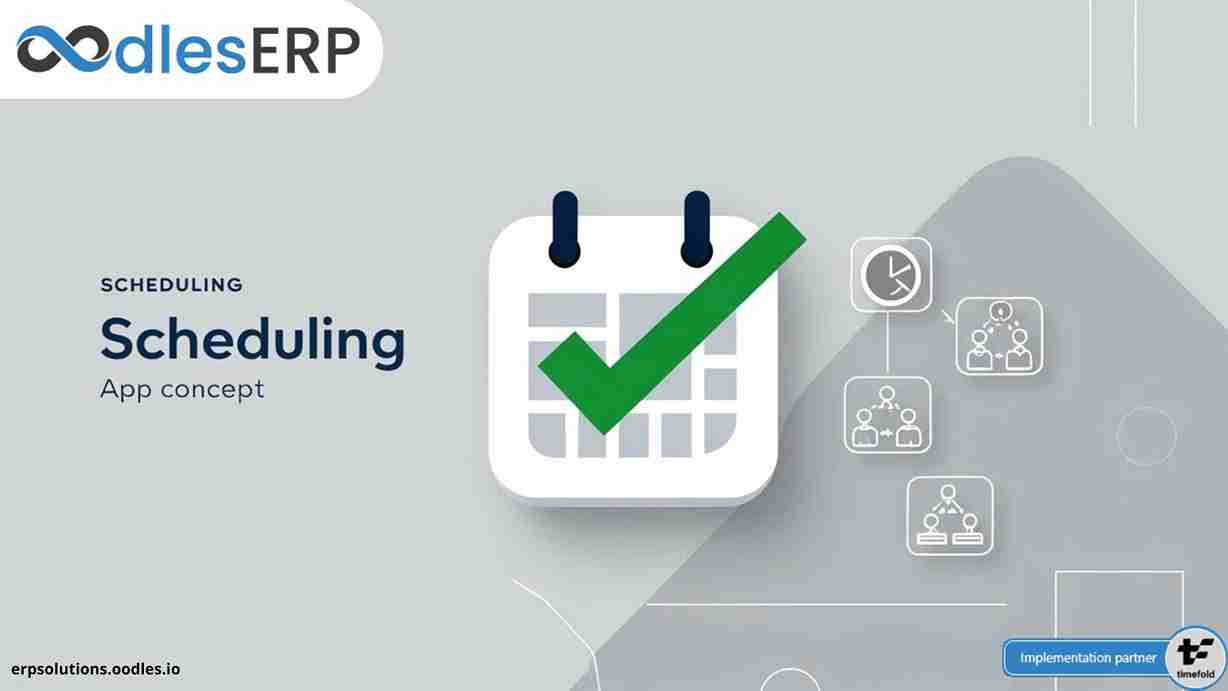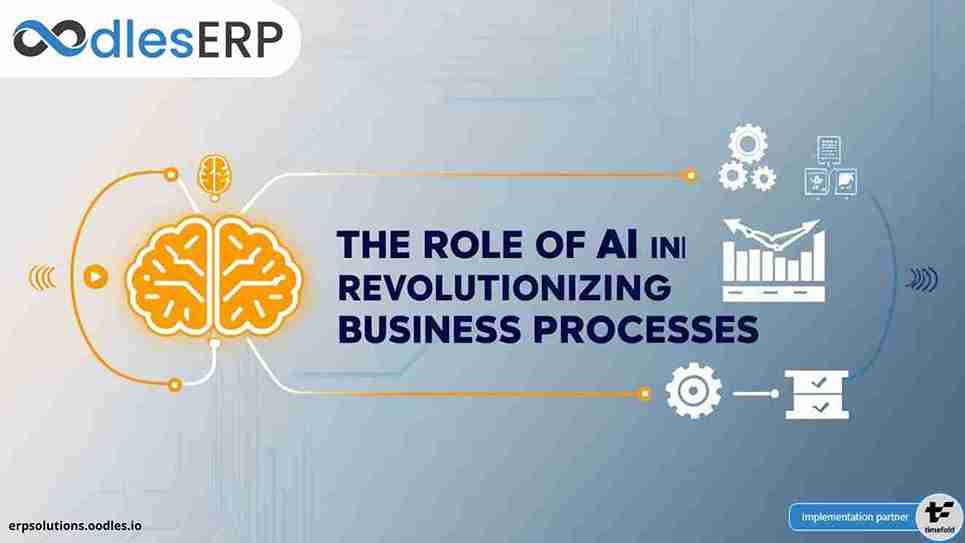Odoo ERP Implementation: An Overview
Businesses are facing dense competition in the market to overpower their competitors. To stay ahead, it is necessary for an organization to comprehend every action of business successfully and efficiently. The advent of ERP software has simplified the management of businesses. It has reduced the redundancies in data management by automating manual entries. Stakeholders and employees got more time to focus on other business operations. But, ERP has its limitations while incorporating different activities of businesses.
An enterprise has several departments like Human Resource Department (HRM), Customer Relationship Management (CRM), Warehouse, Inventory, Finance, and Accounting. But, for communication in every department, different software was implemented to perform a defined set of activities. The drawback was that there was no communication between the different departments resulting in loss of data and resources.
ERP systems are essential for enterprises with a significant workforce to streamline workflows. Enterprises save IT costs, improve operational efficiency, enhance customer service, plan better, strengthen data security, and ensure regulatory compliance with ERP systems. That being said, ERP systems are effective only if they can break departmental silos to provide visibility across the organization.
Let’s explore Odoo, an open-source ERP platform that connects all business functions to enable data-driven decisions.
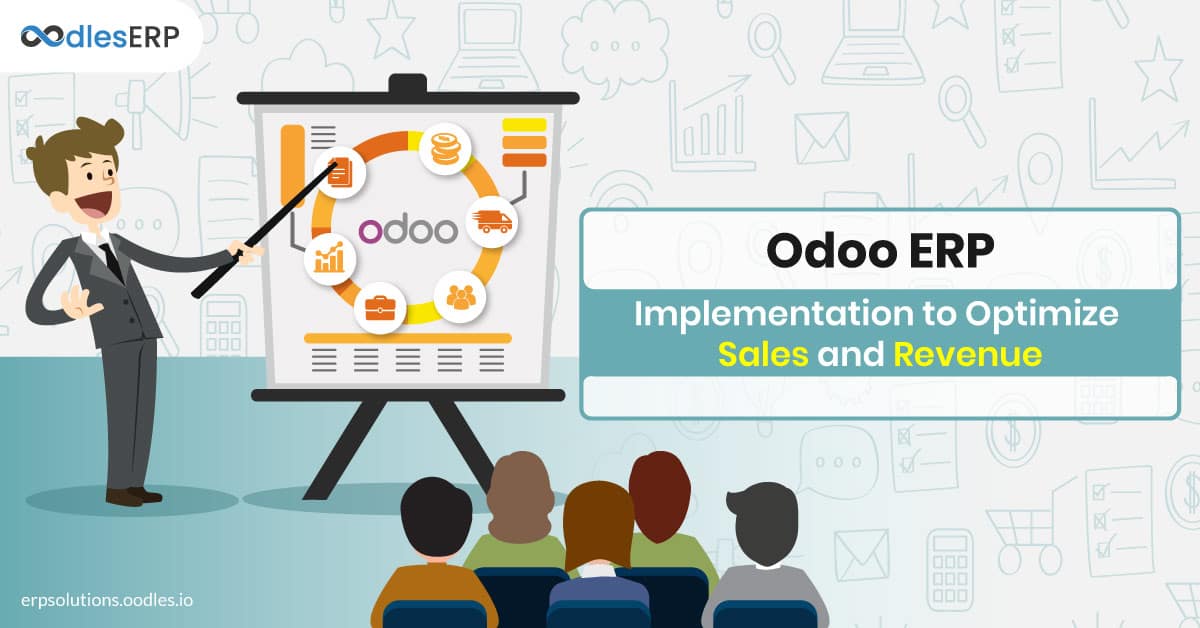
Features of Odoo
Odoo is a customizable platform that provides all essential features to enhance business performance and drive growth. It has the following modules:
CRM: Odoo’s CRM module enables users to manage tasks, issues, bugs, requests, claims, opportunities, and leads. It automates key tasks like prioritization, notification, identification, and communication.
Sales Management: With Odoo, businesses can easily manage and classify sales order into a structured and hierarchical system. It provides the ability to create new orders and review existing orders.
Purchase Management: Odoo enables businesses to track suppliers’ quotations and convert them into purchase orders.
Warehouse Management: Odoo supports the management of multiple warehouses and stock locations. The inbound, outbound and stock locations can be defined for each warehouse.
Point of Sales: Businesses can easily manage all point of sales operations like inventory, cash registry and invoicing with Odoo. It provides a consolidated view of all business operations and inventory.
Manufacturing: Odoo enables businesses to manage manufacturing operations including multi-level routing and work centers. It enables them to track work orders and supports planning methods like make-to-stock and make-to-order.
Benefits of Odoo ERP Implementation for Your Business
Availability
Odoo provides 5000+ modules and businesses can plugin modules to fulfill their specific requirements. The session management in Odoo is done by Werkzeug (werkzeug.contrib.sessions) at a low level.
Single Software Application
Odoo is an open-source ERP platform that can fulfill all business requirements. It includes modules like CRM, HRM, inventory, manufacturing, and accounting. Odoo’s app store has more than 10,000 apps which address the specific needs of multiple industries.
Easy Implementations and Integrations
Odoo is API-friendly and can easily integrate with other business modules and applications. Many ERP systems face issues with business processes and data consistency. Odoo improves the efficiency of business processes by integrating with other platforms. Its easy integration with Magento, Shopify, eBay, and channel advisor provides significant advantages.
Odoo has a modular structure (sales, inventory, accounting, and warehouse) and thus it can be implemented in a phased approach. Implementing one module at a time enables organizations to test the functionality of the module.
No Licensing Costs
Licensing costs for leading ERP systems are significant which can be avoided with Odoo development. Odoo implementation does not attract any licensing fees since it is open-source. The source code is readily available for ERP development projects. With no licensing costs, businesses can invest their saved money for future customizations.
Odoo ERP Implementation Process
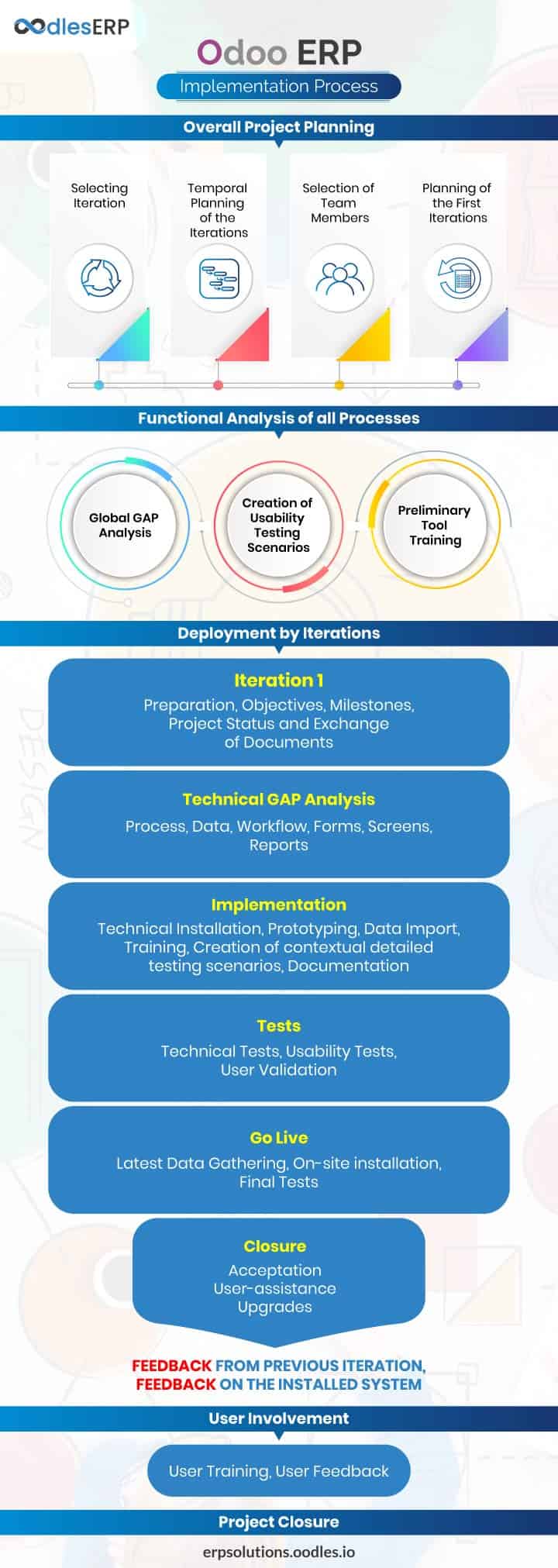
How Odoo ERP Implementation Solves Business Challenges
Attracting New Leads
Odoo is an open-source ERP platform that enables businesses to create their own website from scratch. The Odoo website builder has numerous options like the change of color, picture, and font. The marketing features of Odoo like drag-and-drop feature and call to action button enable businesses to enhance their position on Google. When a client fills and submits a form on the website, the details and information are directly stored in the Odoo sales app. It enables the sales teams to directly follow-up with potential clients.
Project Management
Odoo’s project management module enables businesses to handle all their projects in a simple and efficient manner. With this module, it is easy to track the status of every project in an organized way. The tasks for the completion of the project are divided into sub-tasks and then assigned to different employees. In addition, businesses can use Odoo calendar which keeps them on track to meet deadlines.
Automates Tasks
Error-prone manual data entry tasks and processes can be avoided with Odoo’s automation features. Odoo ERP automates tasks (generates sales order and invoices) to reduce errors. Team members from every business function get more time to focus on critical tasks.
Avail Benefits of Odoo ERP Implementation with Oodles
Empower your business with our Odoo development services. Our ERP development team adopts best practices for Odoo implementation. We have developed user-friendly applications for several businesses using Python and PostgreSQL. Our ERP team is skilled at using Odoo to reduce business complexities and enhance productivity.
The key services we provide are:
- End-to-end ERP and CRM implementation
- Dashboard development
- Maintenance and Support
- Custom module development
- Feature customization
- Odoo Migration
Concluding Thoughts
Odoo supports continuous scalability which is required by businesses to lead the market in today’s competitive scenario. It provides multiple business benefits like flexibility, easy integrations, flawless user interface, and simplified navigation. It is highly modular and supports business operations and provides them with integrated solutions. The Odoo technology stack is upgraded routinely to adapt to changing business dynamics.
Read More: Best Development practices for Odoo E-commerce Speed Optimisation
